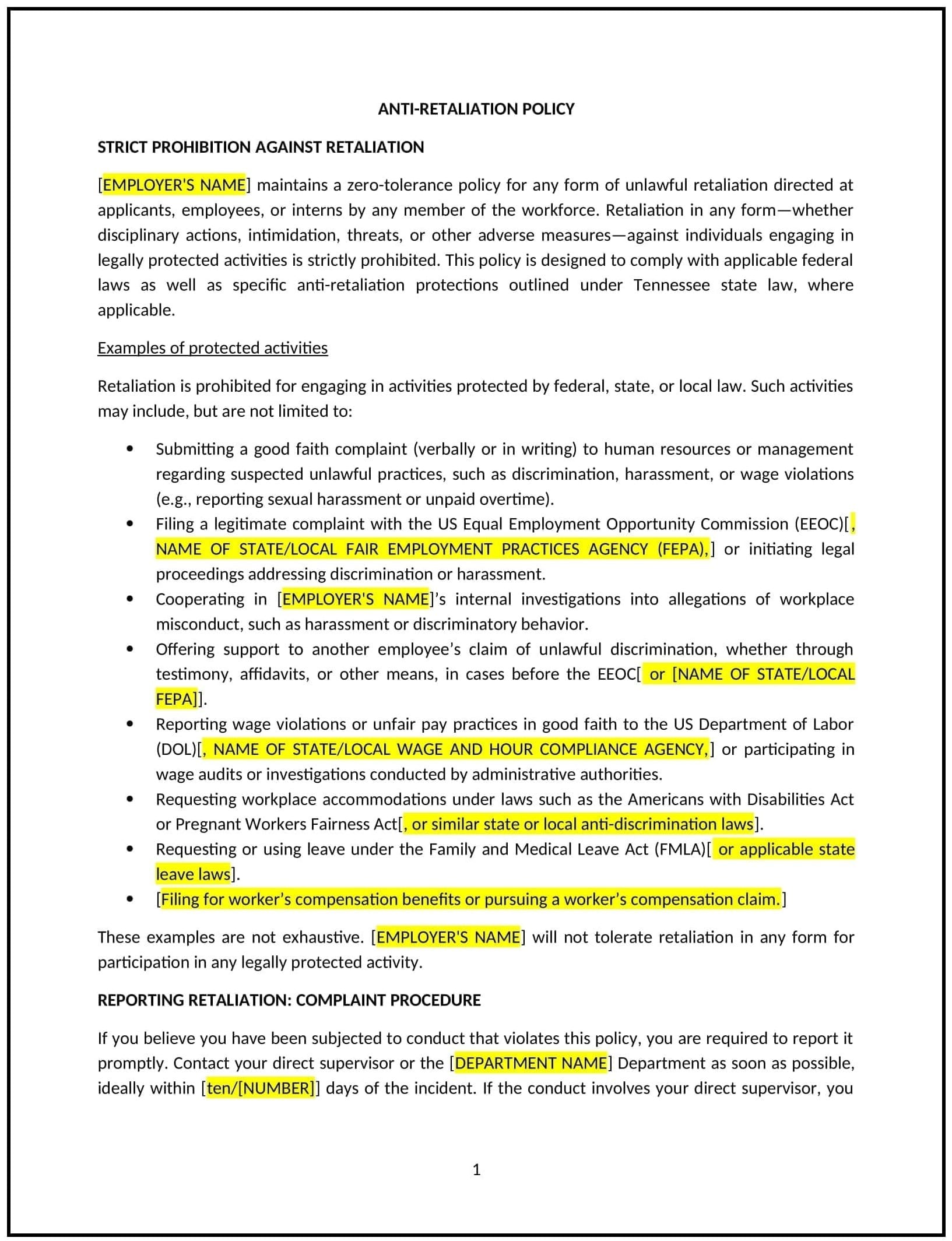Got contracts to review? While you're here for policies, let Cobrief make contract review effortless—start your free review now.

Customize this template for free
Anti-retaliation policy (Tennessee)
This anti-retaliation policy is designed to help Tennessee businesses create guidelines for protecting employees who report misconduct, file complaints, or participate in investigations. It outlines procedures for preventing and addressing retaliation in the workplace.
By adopting this policy, businesses can foster a culture of transparency, protect whistleblowers, and reduce legal risks.
How to use this anti-retaliation policy (Tennessee)
- Define retaliation: Clarify what constitutes retaliation, such as demotion, termination, or harassment in response to reporting misconduct.
- Establish reporting procedures: Provide steps for employees to report retaliation, including anonymous options.
- Set investigation protocols: Outline how retaliation claims will be investigated, including timelines and confidentiality measures.
- Address corrective action: Explain the consequences for retaliation, such as warnings, suspension, or termination.
- Train managers: Educate supervisors on preventing retaliation and supporting employees who report misconduct.
- Review and update: Assess the policy annually to ensure it aligns with evolving business needs and legal requirements.
Benefits of using this anti-retaliation policy (Tennessee)
This policy offers several advantages for Tennessee businesses:
- Fosters transparency: Encourages employees to report misconduct without fear of retaliation.
- Protects whistleblowers: Demonstrates a commitment to supporting employees who raise concerns.
- Reduces legal risks: Helps businesses comply with anti-retaliation laws and avoid legal disputes.
- Enhances trust: Builds employee confidence in the business’s commitment to fairness and integrity.
- Promotes accountability: Ensures that misconduct is addressed promptly and appropriately.
Tips for using this anti-retaliation policy (Tennessee)
- Communicate the policy: Share the policy with employees and include it in the employee handbook.
- Provide training: Educate managers on preventing retaliation and supporting employees who report misconduct.
- Monitor compliance: Regularly review retaliation claims to ensure adherence to the policy.
- Address issues promptly: Take corrective action if retaliation is reported or observed.
- Update regularly: Assess the policy annually to ensure it aligns with evolving business needs and legal requirements.